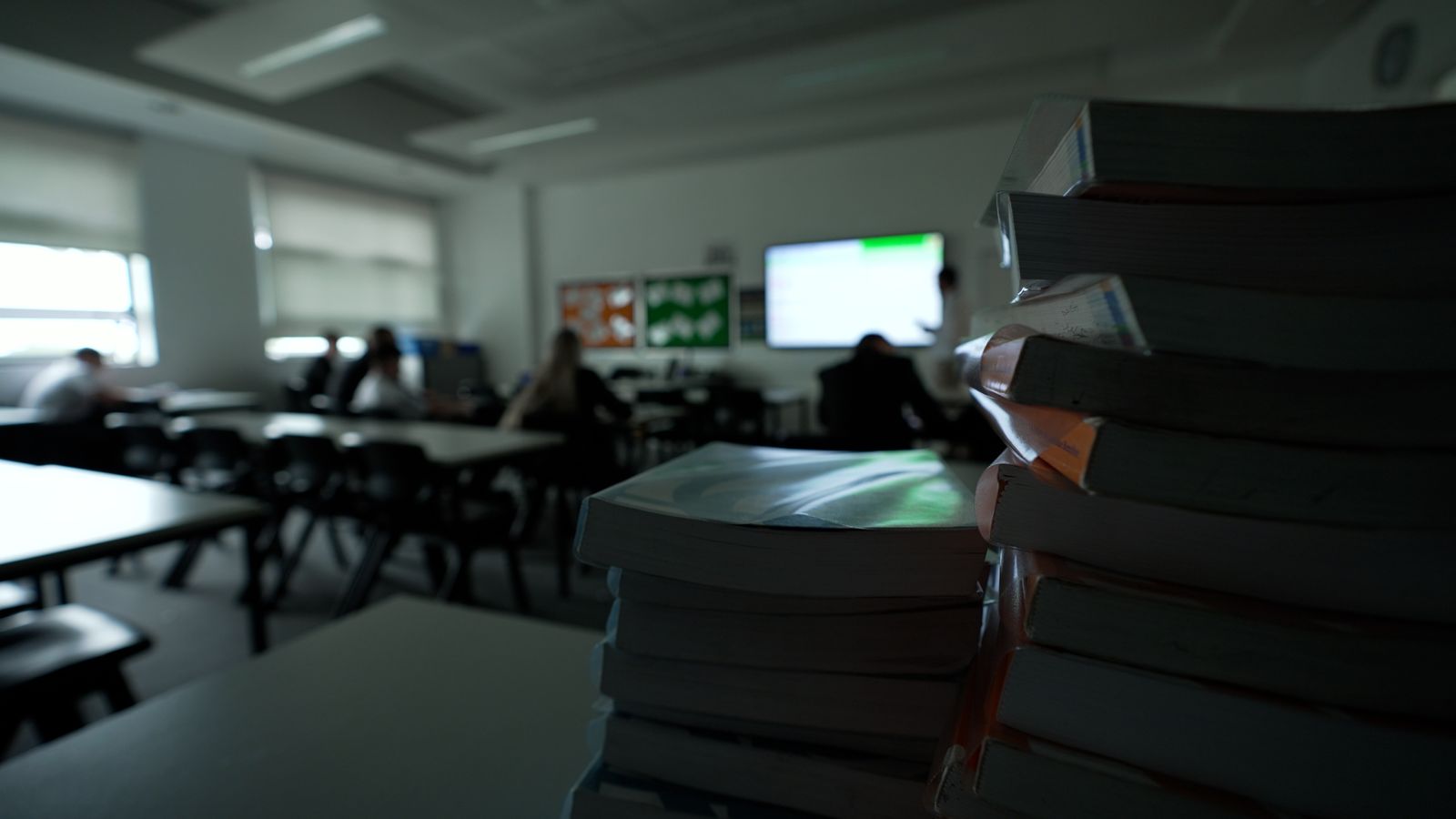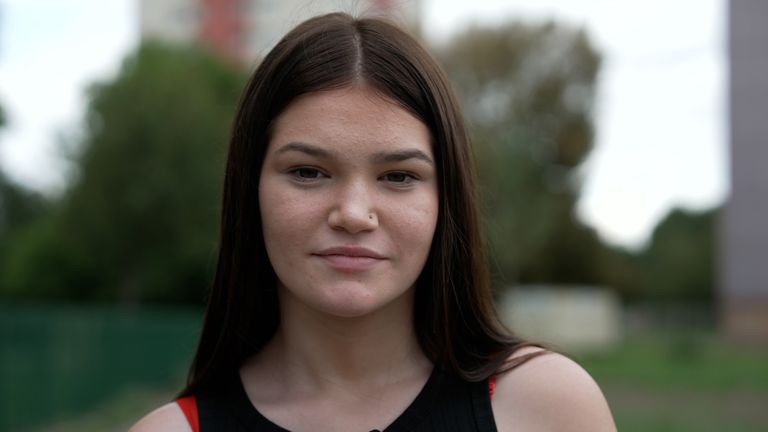More than a million days of learning were lost last year after record numbers of children were suspended from school.
School suspensions have risen by a third compared to pre-pandemic levels, leading to fears of a deepening crisis in our schools post-pandemic.
And for the first time, Sky News can reveal that the number of suspensions involving girls has increased by 59% since before the pandemic.
But teaching leaders say there is a national shortage of alternative forms of education for excluded pupils as the rise in suspensions puts unprecedented demand on the system.
Schools like the Marvell College in Hull say they have taken steps to reduce suspensions by creating their own alternative provision within the school for children whose behaviour means they are at risk of being suspended.
Here special classes are set up to give some pupils a chance to re-engage with school.
Postcodes ‘shouldn’t dictate potential outcomes’
Headteacher Jake Capper said it is working.
“We’re not putting the responsibility onto anyone else. These are our children. This is our community. And we’re proud of our children and our community. What we do here allows some of our pupils to decompress and to understand what’s expected of them.
“As they get a little bit older and become a little bit more mature, we can work with them in their families to decide about what’s best for them in the longer term.
“I think that the postcode you live in shouldn’t dictate your potential outcomes. If some children find that school is a challenge they should have the resources to support them.”
Thousands of suspended children a day missing out on learning
Nationally, the problem is getting worse.
New Department for Education data reveals more than 3,000 children a day lost learning through suspension from school in 2021/22.
Analysis of the data was carried out by a new “Who’s Losing Learning? Coalition”, made up of founding organisations The Difference, Impetus and IPPR.
The increase in suspension is adding to the growing problem of school absence.
And poverty is one of the main causes of low attendance.
Three times as many children receiving free school meals are absent from school than those who don’t get them.
And more than half of all suspensions were of children living in poverty, who are 3.7 times more likely to be sent home than other children.
Read more education news:
More children to arrive at school with ‘dirty uniforms’
PM supports education secretary’s handling of concrete crisis
A child who is excluded from school can often find themselves in an alternative provision setting elsewhere in their community.
But the rising numbers of exclusions is placing unprecedented pressure on these settings too.
Calls for government funding and mental health support
Dave Whitaker, director of learning at Wellspring Academy Trust, an alternative provision and special school, said: “Local authorities, with their statutory responsibility to provide full time education for excluded pupils, are struggling to keep up with the demand for alternative places.
“The places are filling up quicker than ever and with schools excluding children in vast numbers, resources are strained and the children inevitably suffer.”
The Sky News Daily podcast will be speaking about this later today. If you’re a teacher or a parent with experiences related to suspension get in touch by emailing skynewsdaily@sky.uk
Geoff Barton, general secretary of the Association of School and College Leaders said: “We completely support calls to focus on identifying the reasons behind higher rates of persistent absence and suspension, as developing an understanding of the problem is crucial to fixing it.
“School and college leaders only ever suspend pupils as a last resort but there is clearly a need to look at how to prevent issues from escalating in the first place.”
Mr Barton said the solution lies in additional government funding for early intervention as well as pastoral and mental health support.
A Department for Education spokesperson said: “We back head teachers to take the action necessary to promote good behaviour and maintain calm and safe school environments.
“We have issued updated guidance on suspensions and permanent exclusions and are clear that early intervention should be put in place where children are at risk of being excluded and entering alternative provision. We have also formed SAFE taskforces in ten areas of the country to offer mentoring and other support to at-risk pupils in mainstream education, before challenges escalate.”

